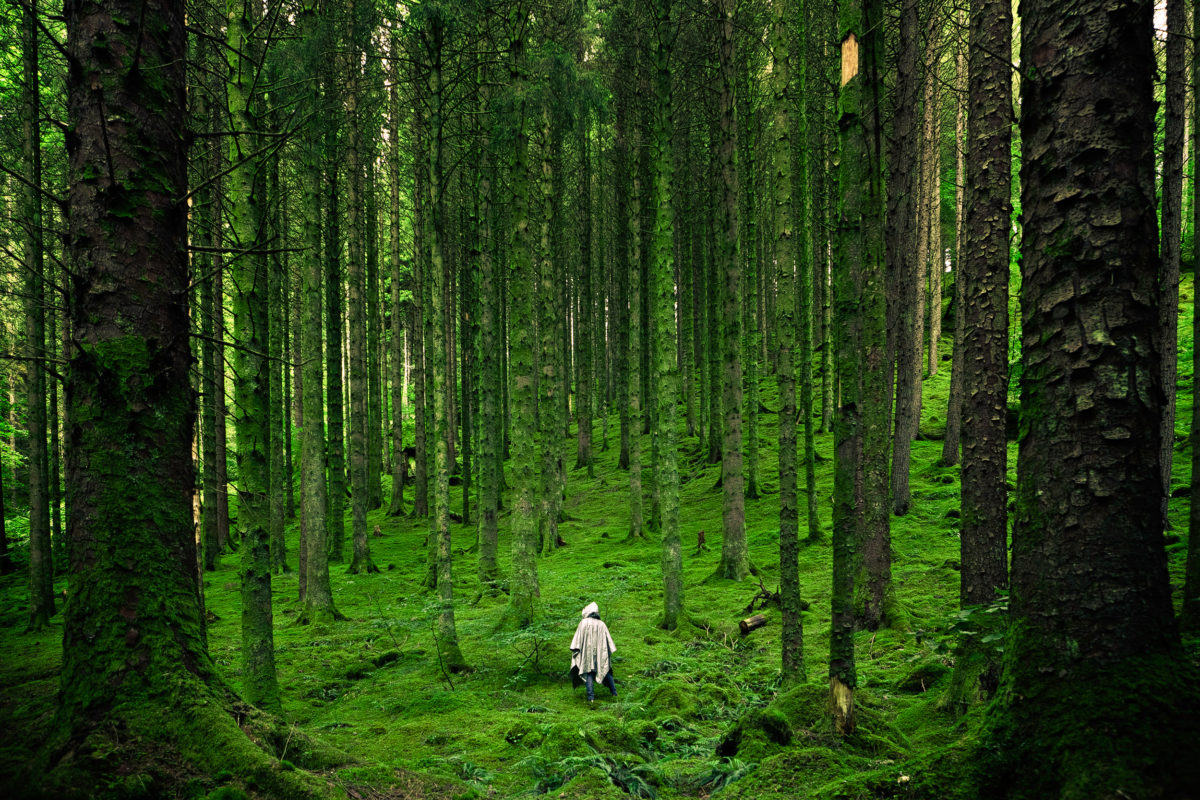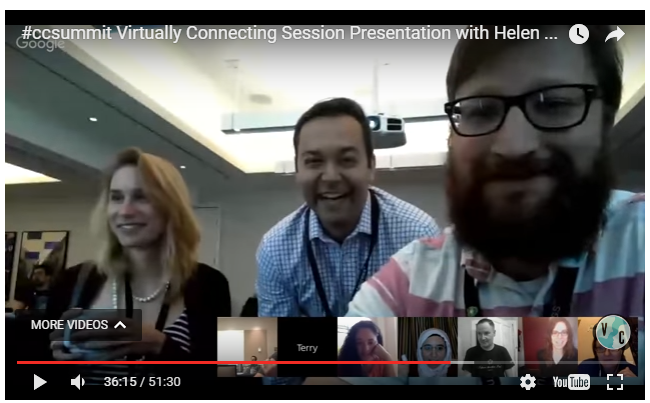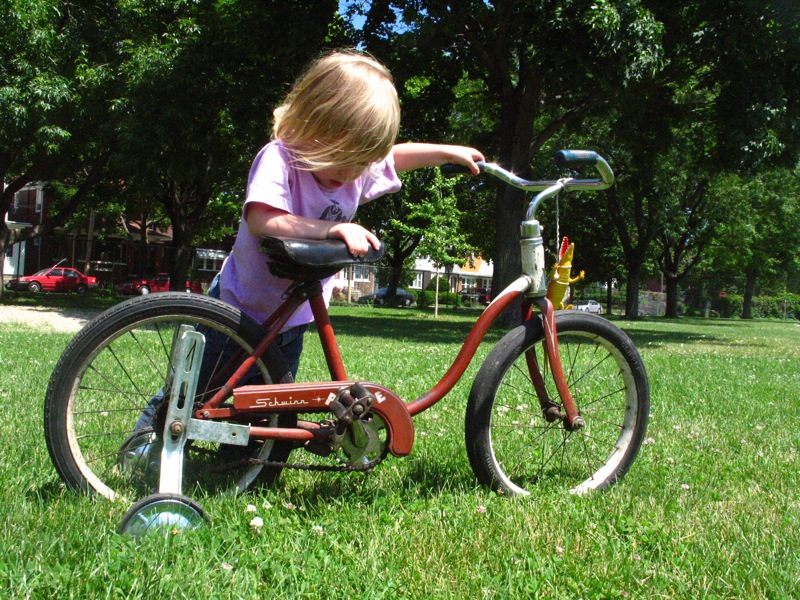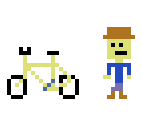The whole reason the Ghost of Christmas Future shows up is just to say “Don’t eff this up, Ebenezer. Get your act together and avoid your terrible future”. It worked for that cranky old bastard and it could work for us.
On Saturday at The Creative Commons Global Summit in Toronto, Ashe Dryden showed us some of our past futures. Things that we used to think might be our future. What I take from that is the need to think about the things that could have happened, the things we hoped would happen, the things we hoped wouldn’t happen and what actually did happen to help us try to forge the best future that we can. The ruby red-lipped, shark people of Jupiter with 8-pack abs have not yet taken over, but we still want to avoid it. Maybe they are super chill, though, so who knows?
#ccsummit buff shark people from @ashedryden as we all obviously expected pic.twitter.com/klhGLM3R0H
— (((Terry Greene))) (@greeneterry) April 29, 2017
So in that spirit, I want to make sure I don’t squander the opportunities that attending the #CCSummit afforded me and forge the best path that I can from here. If Scrooge can do it, I can, too.
Here’s my quick list. It is not exhaustive of all the things I want to take from the summit, but it’s my start:
- Read my signed copy of ‘Made With Creative Commons”.
Got a signed copy for sale! Haha jk can't wait to dive in to this! #ccsummit pic.twitter.com/CRadhDLR8S
— (((Terry Greene))) (@greeneterry) April 28, 2017
- Read more of Ashe Dryden’s work
- Read The Internet of Garbage by Sarah Jeong. Her keynote was fabulous.
"If you want to build a democracy that is a marketplace of ideas, you have to build a marketplace first." #ccsummit @sarahjeong pic.twitter.com/25Nk8AZy7f
— Creative Commons (@creativecommons) April 29, 2017
- Think more about the links between Co-ops and the Commons
- Learn more about copyright through the performing arts
- Keep doing that sweet, sweet Virtually Connecting. I love doing these. Everyone is so nice. Here’s a screenshot from one of those sessions:
Popping into Helen DeWaard’s Virtually Connecting Session with Rajiv Jhangiani (@thatpsychprof)
- Get CC certified and hope that they go with tattoos as their form of certificate/badge because that would be tight.
- Use those pretty pictures on unsplash. Hopefully they can get themselves a button on the CC Search page. Found a pretty sweet one of a ‘ghost’ for the featured image of this post, I think.
- Finish colouring my Women of The Commons colouring book if I can get it back from Alice.
Alice getting to work on the #ccsummit Women of the Commons colouring book pic.twitter.com/gd9zeJz7bF
— (((Terry Greene))) (@greeneterry) April 30, 2017
- Work to put a project in place to make sure we’re using all of the open textbooks that we can and move towards contributing as well. All the amazing work BC Campus has done for open textbooks is soon going to be adopted by eCampusOntario so that we can join the party, too!
- Convince Matt Ryan and Tom Jenkins to get on Twitter and join the party.
@thatpsychprof @lilyrglg @mia_clarkson @aliversluis @gslag @bradyyano @acoolidge @davidp_eCO @nora_leo @yystvns @lpatter10 @clintlalonde + Matt Ryan and Tom Jenkins, these two weirdos that don't have Twitter sitting beside me
— (((Terry Greene))) (@greeneterry) April 30, 2017
- Revel in the fact that I got to chat Oilers with Martin Weller
Go Oilers! With @greeneterry at #ccsummit pic.twitter.com/ug05M09KA3
— Martin Weller (@mweller) April 30, 2017
What’s your CC future?
Feature photo: https://unsplash.com/@luisdelrio

This work is licensed under a Creative Commons Attribution 4.0 International License.
p.s. Here are the culprits who broke the news/Internet
A taxonomy of #fakenews by @sarahjeong at #ccsummit pic.twitter.com/EJnEXNCOHd
— Doug Belshaw (@dajbelshaw) April 29, 2017





